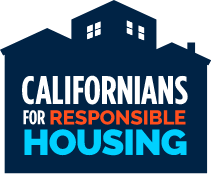The Justice for Renters Act is the latest attempt by Michael Weinstein to repeal the Costa-Hawkins Rental Housing Act at the ballot (following the defeat of Proposition 10 in 2018 and Proposition 21 in 2020).
Costa-Hawkins represents a balanced approach to rent control, allowing stabilized rents during a tenancy and market rate increases once the tenant voluntarily vacates. It also promotes development by exempting new construction and owner-occupancy opportunities by exempting single family homes and condos. It was enacted in 1995, in part, to avoid the harsh and unworkable application of “vacancy control” – the permanent control of rental units, even following the voluntary vacate of its tenants.
Vacancy decontrol has proven to be a necessary feature of a functioning market, promoting the investment in, and maintenance of, quality, affordable rental housing. Vacancy control would pick winners and losers based on chance (or worse, black markets, with the “selling” of low-rent housing by tenants to their chosen assignees), further alienating newer renters. It would discourage investment in rental housing, leading to further scarcity in housing at a time when California desperately needs more.
Costa-Hawkins.com encourages you to join the Californians for Responsible Housing and vote “no” on the Justice for Renters Act. You can read their fact sheet here. You can find out more at californiansforaffordablehousing.org. Please donate to the opposition campaign by contributing to the CAA Issues Committee, and most importantly vote “no” this November.



